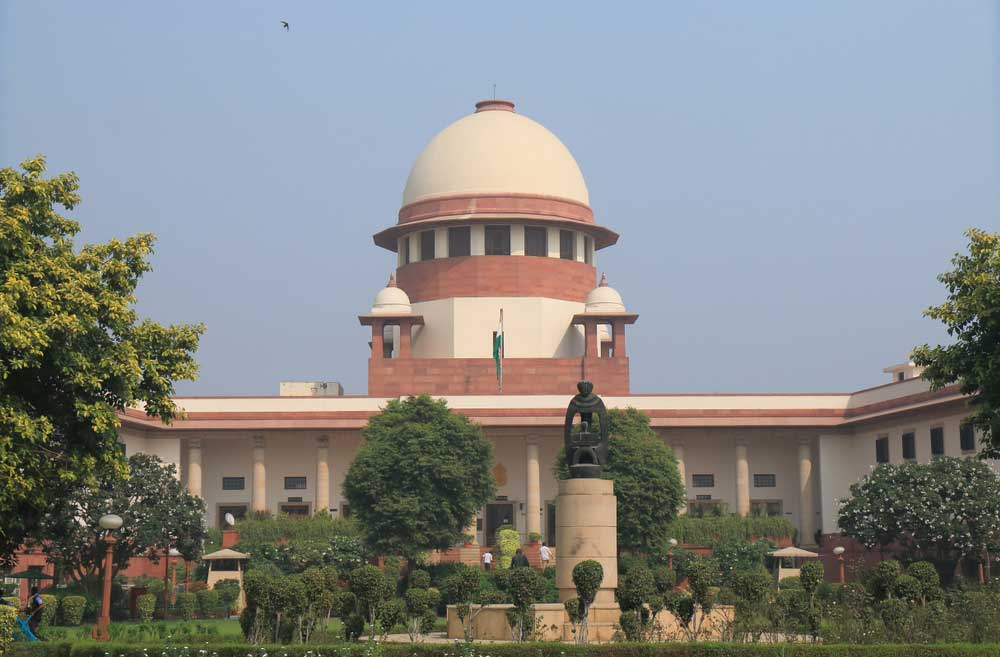The Supreme Court on Wednesday ruled that states could appoint an IPS officer as their police chief only if the officer had at least six months of service left before his retirement in the normal course.
The officers concerned should have “a minimum residual tenure of six months i.e. officers who have at least six months of service prior to retirement”, the court said in a judgment.
The bench of Chief Justice Ranjan Gogoi and Justices L. Nageswara Rao and Sanjiv Khanna also scrapped the existing practice of the Union Public Service Commission (UPSC) empanelling only those who have a minimum two years left to retire.
The judgment came on an application that Prakash Singh, a former police chief of Uttar Pradesh, had filed, challenging a growing tendency among states to appoint officers as director-general of police (DGP) a few days before their retirement or even on the last day of their service.
The petitioner had contended that states were taking advantage of the top court’s judgment in the Prakash Singh versus Union of India case in 2006 by appointing pliable officers to the crucial post at the fag end of their normal tenure of service.
The court had then ruled that a person appointed as the DGP must have a minimum two-year period of service, irrespective of his normal date of retirement, so that the key office is insulated from all kinds of influences and pressures.
As for the practice of appointing only those who have a minimum two-year period left for retirement, the petitioner had contended that it would kill the prospects of other meritorious and eligible officers.
The bench agreed with the petitioner’s submissions. “We are of the view that what was emphasised in Prakash Singh… is a minimum tenure of two years for an incumbent once he is appointed as the director-general of police.
“The direction issued by this court neither contemplated the appointment of a director-general of police on the eve of his retirement nor the practice now adopted by the Union Public Service Commission in making the empanelment, i.e. empanelling officers who have at least two years of tenure,” Justice Gogoi, writing the judgment, said.
The bench said that neither of the “aforesaid practice, in our considered view”, could further the directions of this court in the Prakash Singh case or “give impetus to what this court had in mind in issuing the directions”.
The court said the earlier bench wanted the appointment of a police chief to be “purely on the basis of merit and to insulate the said office from all kinds of influences and pressures”, had ruled that “once appointed the incumbent should get a minimum tenure of two years of service irrespective of his date of superannuation”.
Neither had this court contemplated recommendation for appointment of officers who are on the verge of retirement or appointment of officers who have a minimum residual tenure of two years, the bench said.
“The emphasis was to select the best and to ensure a minimum tenure of two years’ service of such officer who is to be selected and appointed.”
The court noted that the Police Acts too don’t contemplate any fixed residual tenure for an officer to be recommended for appointment as the police chief of a state.
“In the above conspectus the object in issuing the directions in (the) Prakash Singh (case) in our considered view, can best be achieved if the residual tenure of an officer, i.e. remaining period of service till normal retirement, is fixed on a reasonable basis, which, in our considered view, should be a period of six months.
“This will take care of any possible action on the part of the state government which can be viewed by any quarter as an act of favouritism.”
The court said recommendations for the appointment of an officer as a state’s police chief on the eve of retirement or the UPSC embarking upon a course of action that might have an effect of overlooking efficient and eligible officers would “stand obviated” by its above direction.











